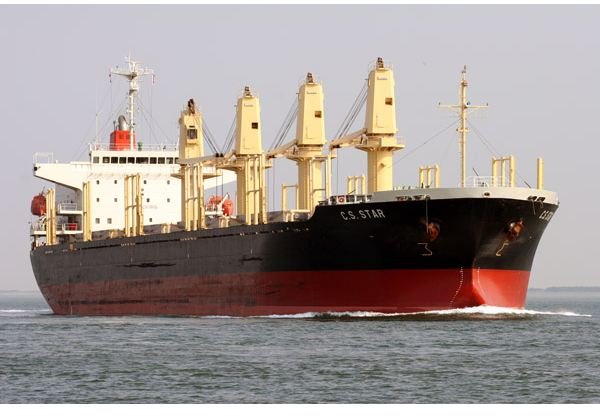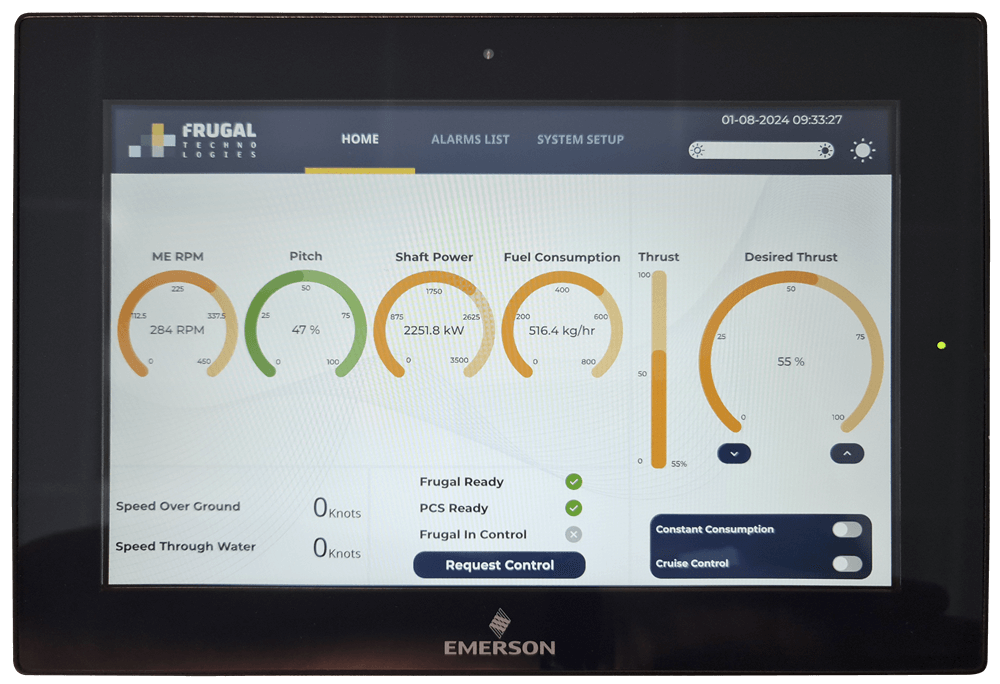SmartPropulsion: A Game Changer for Reducing Fuel & Ensuring Compliance

Across the global marine industry, environmental sustainability and economic efficiency are becoming increasingly intertwined. Vessel owners and operators face pressure to adopt fuel-saving solutions to meet the ever-tightening regulatory standards such as the 2050 zero-emission target, as well as market expectations for greener shipping.
While many technologies promise efficiency improvements, they are often costly, complex to implement, and in some cases, simply cannot deliver the results they initially promise. This puts marine businesses at an impasse; if they fail to meet regulations, they simply cannot operate the ship. Even if they do comply today, they must achieve and maintain a CII rating that meets changing regulations. While also contending with rising fuel costs and new carbon tax legislation, making it critical to reduce operating costs.
Against such uncertainty, shipowners need to be sure they are making the right decisions, not only to ensure their profitability and compliance now, but to de-risk their future. The industry seeks a solution that is cost-effective to install, does not require dry docking, and guarantees the necessary fuel savings. One proven technology delivers all this and more, known as SmartPropulsion and it achieves impressive results.
SmartPropulsion – a game changer
SmartPropulsion is an energy-saving solution from Emerson, powered by Frugal Technologies, that optimizes propulsion efficiency through AI and machine learning by monitoring and learning a vessel’s operating parameters in real time.
The reduction varies in accordance with propeller types, however a proven fuel saving of up to 15% has been documented in vessels equipped with CPPs, while fuel savings of up to 5% is documented in vessels equipped with FPPs. Every vessel goes through a business case evaluation, based on historical data, that evaluates the feasibility and return on investment. Not only does this mean they can save significant amounts on fuel costs, but SmartPropulsion also helps vessels to comply with existing and upcoming emissions regulations and achieve an optimal CII rating.
"We are proud to introduce SmartPropulsion, our latest innovation in collaboration with Frugal Technologies. Emerson is committed to making the world healthier, safer, smarter and more sustainable. With SmartPropulsion, we are taking a significant step forward in our commitment to sustainability, supporting our customers to navigate their daily challenges and realize their decarbonization goals." Jakob Noerr, vice president, marine solutions, Emerson.
Minimal CAPEX with significantly reduced OPEX
SmartPropulsion is compatible with all vessel types, engines, fuels, and propulsion systems. As an on-top solution, it interfaces directly with the existing Propulsion Control System, rather than the engine or propeller itself. This ensures proper equipment safety and gives a lower implementation cost compared to other energy-saving technologies.
Installation can be completed in three days, with no dry dock or off-hire days. This means vessels can be back in operation extremely quickly and can start delivering significant OPEX savings, with full return on investment (ROI) in as little as six months. The solution requires minimal training and, as a software-driven solution, maintenance is virtually non-existent.
Data-driven intelligence
SmartPropulsion uses cloud technology to combine Model Predictive Control and machine learning to collect and analyze data from the vessel’s operational parameters to create optimal propeller curves.
This means the system learns from experience over time. So, the longer it runs, the better it tracks the condition of the vessel and the more optimized the propulsion system becomes. On top of this, the vast amount of data collected can be integrated into existing intelligence solutions, generating insight for predictive maintenance. This enables users to solve any potential operational issues long before they become critical, saving considerable costs in repairs, associated downtime, and off-hire periods.

Proven results
SmartPropulsion is already proving its worth. Older vessels save more, but even relatively new vessels built according to old designs can have high savings.
For example, Uni-Tanker’s chemical tanker has seen a 12.2% improvement in fuel savings using SmartPropulsion, giving an ROI of only nine months and providing full documentation for CII reporting. Uni-Tankers was so impressed that they have installed SmartPropulsion on another eight vessels. Kristian Larsen, Technical Director at Uni-Tankers, commented: “With SmartPropulsion, we have a system that enables us to reduce the climate impact of our fleet while at the same time strengthening our competitiveness.”
In addition, Christiania Shipping has fitted two tankers with SmartPropulsion, giving an estimated 8-12% fuel savings each. Based on positive results Christiania Shipping upgraded more ships and now has eight CPP vessels and four FPP vessels installed with the solution. The FPP vessels are saving 2-4% of fuel and SmartPropulsion is also handling shaft power limitation according to calculated EEXI limits. Following these results, Christiania Shipping is planning to upgrade more of their vessels.
.png)
Based on data from already installed ships, we can estimate the fuel reduction for a typical container vessel of 6K TEU capacity with FPP. With 240 annual sailing days on average, it will consume an estimated 24K mt fuel. With SmartPropulsion installed, we can estimate a saving of approximately $4500K per year and ROI can be achieved in four months or less. Additionally, an estimated 2200mt of Co2 emission could be saved annually, significantly improving the CII rating for the vessel.
One to watch
Most vessel owners, managers, and operators would be pleased to gain even a one percent improvement in fuel efficiency. With SmartPropulsion, as much as 15 percent can be achieved, depending on the vessel's design, setup, and operational pattern. When other important factors are also taken into consideration, such as minimal implementation costs, significantly reduced OPEX, and low EU ETS costs, this innovative new technology looks to be a clear winner in terms of efficiency, safety, and value.
As regulations change, there will always be technologies in development to help vessels meet them. However, for the impressive results it delivers, SmartPropulsion is something we can expect to see on many more vessels in the future.
Visit Emerson to learn more about how SmartPropulsion can help improve the operation of your fleet, or contact Naveen Hegde, director, propulsion control and optimization, Emerson.
This article is sponsored by Emerson.
- 9/18/2024
- Shipping News

